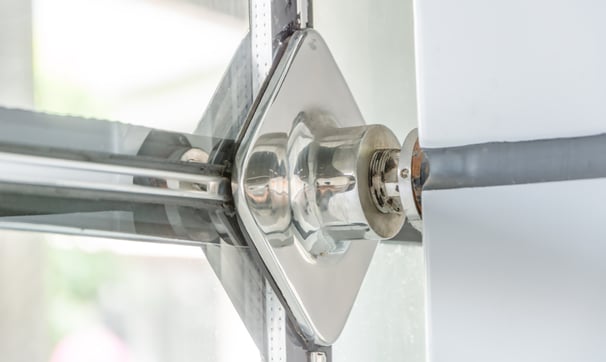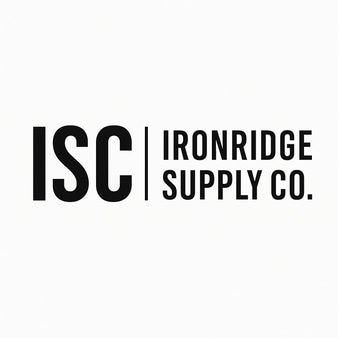When Stainless Steel Isn’t the Best Fastener Material
FASTENERS & HARDWARE


Stainless steel is often considered the gold standard for fasteners—and for good reason. It resists corrosion, looks sharp, and holds up well in most environments. But while stainless steel is great for many applications, it's not always the right choice.
In fact, using stainless steel fasteners in the wrong setting can lead to expensive failures, hidden safety risks, and long-term maintenance headaches.
The Myth of Stainless Steel as a “One-Size-Fits-All” Solution
Yes, stainless steel resists rust. But that doesn’t make it invincible. It has limitations in strength, temperature resistance, and compatibility with other metals.
Common misconceptions:
"Stainless steel doesn’t corrode" → Not true in all environments
"Stronger than carbon steel" → Often false
"Good for any outdoor application" → Depends on material pairing and moisture levels
Understanding the specific weaknesses of stainless steel can help you spec the right fastener for the job—and avoid future headaches.
1. Galvanic Corrosion: A Hidden Enemy
What is it?
Galvanic corrosion happens when two dissimilar metals come into electrical contact in the presence of an electrolyte (like water). One metal becomes the anode and corrodes faster than it would alone.
Why it matters:
Stainless steel is noble—it often causes less noble metals (like aluminum or carbon steel) to corrode when paired together.
This corrosion typically shows up around washers, screw heads, or contact points.
Common Example:
Stainless steel screws used in aluminum panels → Corrosion at connection points within months
Outdoor applications (marine, HVAC, electrical enclosures) are particularly vulnerable
Tip: Use isolation washers, sealants, or matched metals to prevent galvanic issues.
2. High Heat = Structural Weakness
Stainless steel fasteners are NOT ideal for high-heat environments. Their strength and toughness can degrade significantly above 500°F (260°C).
Problem Areas:
Engine components
Exhaust systems
Industrial ovens or burners
High-temperature manufacturing lines
Why?
Stainless steel loses tensile strength as temperature rises. For structural fasteners under dynamic load, this can lead to:
Bolt elongation
Thread stripping
Fatigue failure
Alternatives for High-Heat Use:
Alloy steel bolts (Grade 8)
Inconel or A-286 (for extreme conditions)
Zinc-coated carbon steel for medium heat + corrosion protection
3. Strength Isn’t Always Enough
Stainless fasteners generally fall below carbon steel and alloy steel in terms of tensile strength. For example:
304 or 316 stainless steel bolts: ~75,000 psi tensile strength
Grade 5 carbon steel bolts: ~120,000 psi
Grade 8 bolts: ~150,000 psi
Risk:
In high-load or structural applications, stainless bolts may deform or fail under force that hardened steel could easily handle.
Real-World Warning Sign:
If you’re seeing elongation, galling (thread sticking), or stripped heads during torqueing—your stainless bolts might be overmatched.
4. Prone to Galling During Installation
Galling is a common failure mode when tightening stainless steel bolts. It occurs when threads seize up due to friction, heat, or poor lubrication.
Symptoms:
Sudden torque increase
Fastener seizure mid-install
Bolt shearing or thread damage
Prevention Tips:
Use anti-seize lubricants
Avoid high-speed torquing
Don’t use stainless nuts on stainless bolts (use coated or dissimilar nuts)
5. Higher Cost Doesn’t Equal Better Fit
Stainless fasteners often cost 2–4x more than standard zinc-plated or grade 5/8 alternatives. If your application doesn't demand corrosion resistance, you're simply overpaying.
Cost-Efficient Alternatives:
Zinc-plated Grade 5 for dry indoor use
Hot-dip galvanized for structural outdoor use
Black oxide for aesthetic + mild rust protection
Conclusion
Stainless steel has its place, especially in food processing, marine, and aesthetic applications. But in many industrial environments, there are better-suited fasteners that offer more strength, better thermal tolerance, or improved compatibility.
At Ironridge Supply Co., we help engineers, builders, and maintenance pros choose the right fastener—not just the most popular one. Our wide selection includes stainless, zinc, alloy, galvanized, and specialty-coated options to fit your specific job.
📄 Download Our Galvanic Compatibility Chart (PDF)
🛠 Need Help Specifying Fasteners? Chat with Our Experts
